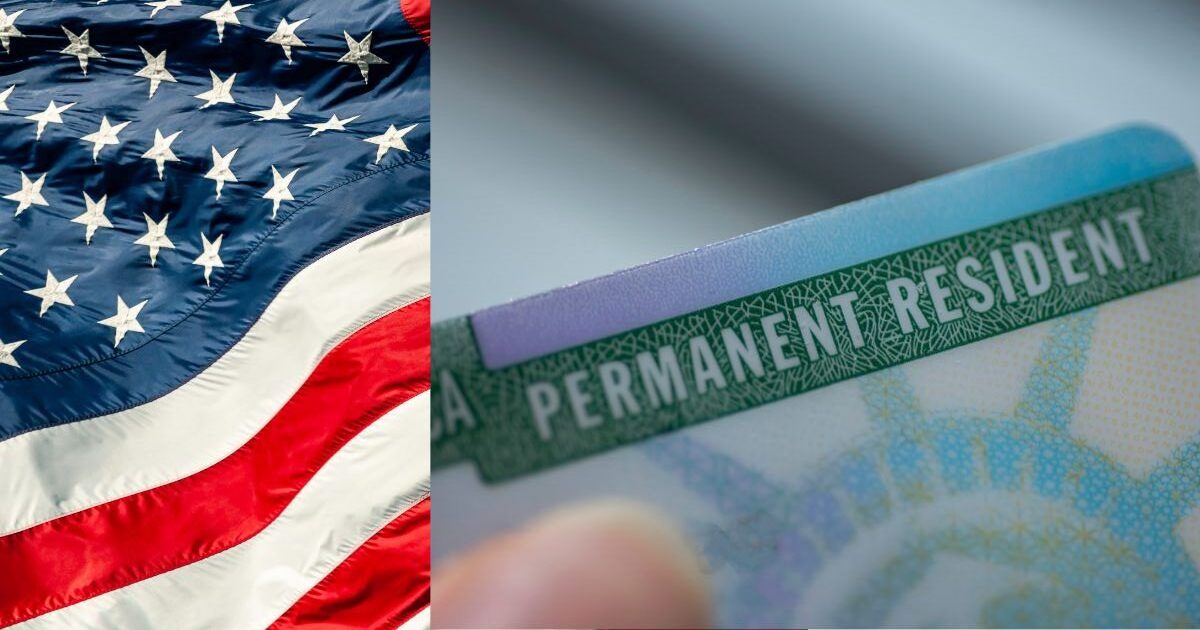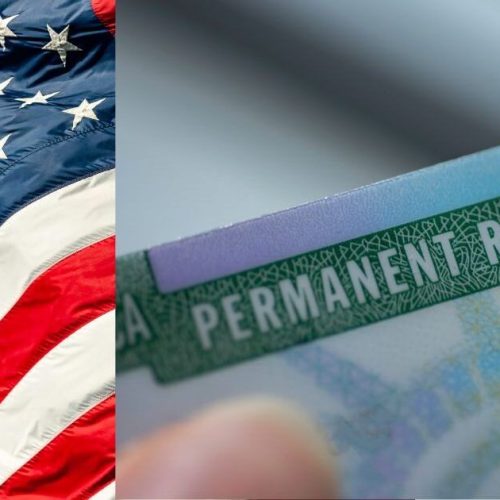The U.S. Green Card, officially called the Permanent Resident Card, grants non-U.S. citizens the legal right to live and work in the United States permanently, making it a key step in the immigration process. As a Green Card holder, you gain numerous benefits and have specific responsibilities, including the ability to sponsor certain family members for their own Green Cards.
Table of Contents
ToggleBenefits of Having a Green Card
Permanent Residency: A Green Card also known as a permanent resident card allows you to reside in the U.S. indefinitely, providing you the freedom to build your life without the need for continuous visa renewals.
Employment Opportunities: Green Card holders can work for any employer in the U.S. without needing a work permit This opens up a wider range of job opportunities and allows for greater flexibility in career changes.
Pathway to Citizenship: After meeting specific requirements, Green Card holders can apply for U.S. citizenship. Generally, you may apply for citizenship after five years of permanent residency; if you are married to a U.S. citizen, the timeframe is reduced to three years. This process includes passing a naturalization test that assesses your knowledge of U.S. history and government.
Access to Benefits: Permanent residents are eligible for various government benefits, including Social Security and Medicare, as long as they meet the necessary criteria. Additionally, they can access federal student financial aid, making higher education more accessible.
Travel Flexibility: As a Green Card holder, you can travel abroad and return to the U.S. However, it is essential to avoid extended absences that could jeopardize your permanent residency status. Absences of over six months can raise questions about your intent to remain a permanent resident, and absences exceeding one year typically require a re-entry permit. This permit allows you to maintain your status while traveling outside the U.S. for extended periods.
Sponsorship Opportunities: One of the most significant advantages of being a Green Card holder is the ability to sponsor specific family members for permanent residency. This includes your spouse, children, and in some cases, parents and siblings.
Legal Rights: Green Card holders enjoy many of the same legal rights as U.S. citizens, such as the right to a fair trial and protection under U.S. laws.
Family of Green Card Holders
As a Green Card holder, you can play a crucial role in helping your family members immigrate to the U.S. Sponsoring relatives for Green Cards can provide them with opportunities to live and work in America, just as you have.
Who You Can Petition For
Green Card holders can petition for the following family members:
Spouse (Husband or Wife): You can sponsor your husband or wife for a Green Card by submitting Form I-130, Petition for Alien Relative. This process involves providing proof of your marriage and your ability to support your spouse financially.
Unmarried Children Under 21: You can petition for your unmarried children who are under 21 years of age. This also requires submitting Form I-130 along with the necessary documentation.
Unmarried Sons or Daughters of Any Age: You can sponsor your unmarried children regardless of age, but this falls into a different category with longer wait times for visa availability.
Married Children: While Green Card holders cannot sponsor their married children as immediate relatives, you can still file a petition for them, though the processing time will be significantly longer.
Siblings: You can sponsor your brothers and sisters, but this process can take several years due to limited visa availability in this category.
Parents: Green Card holders cannot petition for their parents directly, but if you become U.S. citizen, you can sponsor your parents for Green Cards.
The Petition Process
To petition for a family member, you will need to follow these steps:
- Filing Form I-130: Start by submitting Form I-130, which establishes the family relationship. You’ll need to provide various documents, including proof of your own permanent residency and evidence of the family relationship (such as marriage and birth certificates).
- Wait for Approval: After submission, USCIS will review the form. If approved, your family member will receive a priority date, determining their place in line for a visa.
- Consular Processing or Adjustment of Status: Once a visa is available, your family member can either adjust their status if they are already in the U.S. or go through consular processing if they are outside the country. This involves an interview and additional documentation to verify eligibility for a Green Card.
- Receive the Green Card: If everything goes well, your family member will receive their Green Card, enabling them to begin their new life in the United States.
Important Considerations
- Affidavit of Support: When sponsoring a family member, you must sign an Affidavit of Support (Form I-864) to demonstrate that you can financially support them. This legally binds you to ensure that your family member does not become a public charge.
- Visa Wait Times: Visa wait times can vary significantly depending on the relationship and the family member’s country of origin. Some categories may have immediate availability, while others can take years. It’s essential to stay informed about visa bulletin updates from the Department of State.
- Changing Status: If your family member is in the U.S. on a different visa, they may be eligible to adjust their status without leaving the country, provided they meet specific eligibility criteria.
Voting Rights
While Green Card holders enjoy many benefits and rights, it’s crucial to understand that they do not have the right to vote in federal elections. Voting is a privilege reserved for U.S. citizens. This restriction also applies to many state and local elections, although some localities may allow non-citizens to vote on specific issues.
Holding a U.S. Green Card provides numerous advantages, including the ability to sponsor family members for their own Green Cards. By understanding the relationships you can petition for and the steps involved, you can help your loved ones build their lives in the United States.
It is important to remember that while you enjoy many rights as a permanent resident, voting is reserved for U.S. citizens. As you navigate your journey in America, staying informed about your rights and responsibilities is essential.
For further information on the Green Card application process and family sponsorship, visit the U.S. Citizenship and Immigration Services (USCIS) website, which offers detailed guidance and resources tailored to your needs.
For further information on the Green Card application process and family sponsorship, visit the U.S. Citizenship and Immigration Services (USCIS) website, which offers detailed guidance and resources tailored to your needs.





